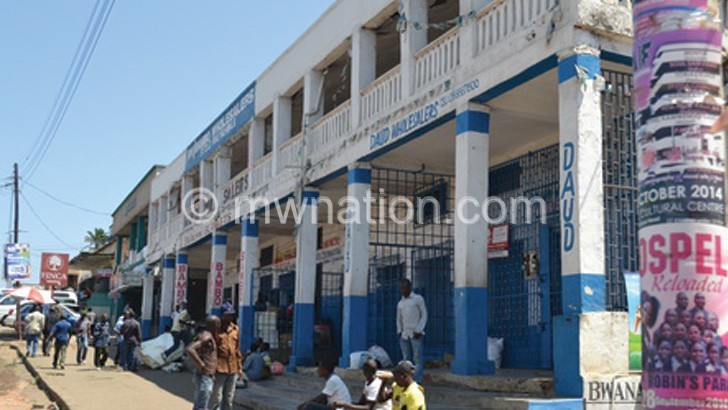Wholesale, retail Trade credit leads
Credit extended by commercial banks to the wholesale and retail trade accounted for a large chunk of loan stock at 21.6 percent in August 2016, according to the Reserve Bank of Malawi (RBM).
This beats the agriculture and manufacturing sectors, which accounted for 20.3 percent and 20 percent respectively, the latest RBM monthly economic and financial review shows.
Malawi is an agro-based economy with the sector accounting for close to 30 percent of gross domestic product (GDP) and earning the country about 80 percent of foreign exchange.

The community, social and personnel services claimed 13 percent, transport, storage and communications sector, which is projected to grow by 3.4 percent in 2016 on account of an improvement in the agriculture sector, claimed 6.2 percent.
Analysts have argued that Malawi’s credit favours non-productive sectors, urging commercial banks to pay attention to key drivers of economic growth, including agriculture and manufacturing.
However, others argue that the financial market allocates finance to sectors based on profitability.
Malawi Confederation of Chambers of Commerce and Industry (MCCCI) president Carl Chokotho has emphasised the need for a vibrant manufacturing industry if Malawi is to transform from an importing to an exporting economy.
He said: “Our manufacturing sector has principally been decimated by the liberalisation policy regime, which the country adopted following what I would call improper advice of the International Monetary Fund [IMF], the World Bank and later on the World Trade Organisation [WTO].
“The liberalisation and privatisation policies which these international bodies imposed upon third world countries, including Malawi, as solutions to our problems, devastated our economies, leading to massive de-industrialisation and turning our country into a consuming country; hence, the need to resuscitate our manufacturing industry.”
According to RBM data, the banking system net claims on the domestic economy—both private and public-rose by K27.6 billion to K663.3 billion at end-August.
However, credit to the central government remained on a high growth trajectory with an increase of K20.4 billion to K264.2 billion at end-August 2016 while on the other hand, net credit to the central government from the RBM leapt by K25.1 billion to K162.6 billion.
“The increase was largely fuelled by a growth in government borrowing from the central bank amounting to K17.2 billion. At the same time, government deposits held at the RBM decreased by K11.4 billion to K255.9 billion,” reads the report in part.
On the other hand, net credit to central government from commercial banks decreased by K4.7 billion, bringing total outstanding commercial banks net claims on government to K101.5 billion at the end of August while credit to the private sector picked up in August 2016 after registering decreases in June and July 2016. n





